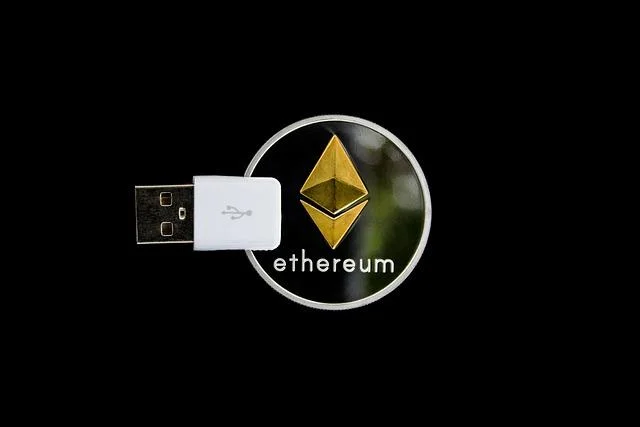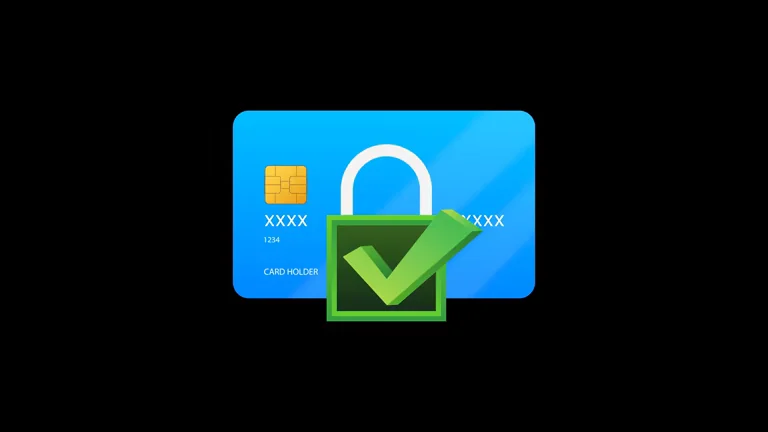FINANCE
Is Ethereum a Commodity or A Security?

The classification of cryptocurrencies remains a much-discussed matter in the industry, with investors often questioning whether digital assets should be considered commodities or securities. Commodities and securities are two very different financial instruments, meaning there are essential differences in terms of margins, taxes, limit moves, and deliveries. Above all, they’re regulated by different agencies and operate in different markets. When it comes to cryptocurrencies, the argument often advanced is that all digital assets except Bitcoin are securities. More precisely, they fall under the jurisdiction of the Securities and Exchange Commission.
The Commodity Futures Trading Commission labeled Ethereum a commodity in court filings. A commodity is a good that can be traded on the market based on its current value. Even if it can be used for transactions, the Ethereum blockchain is more than a mere network for digital exchanges. It’s a decentralized computing network with added features, such as smart contracts. Still, if you want to use it for conducting transactions and receiving payments, track the current Ethereum price and market cap before you buy.
The Securities and Exchange Commission regards Ethereum to be a security according to the Securities Act of 1993 and the Securities Exchange Act of 1934, although it hasn’t taken an official position. Designating Ethereum as a security would have profound implications for the cryptocurrency industry as a whole.
To Get Started, Let’s Understand What Are Commodities and Securities
In their simplest form, commodities are raw materials or primary agricultural products that are traded on exchanges in wholesale quantities. Examples include energy resources (oil and gas), precious metals (gold and silver), and agricultural produce (corn or wheat). Commodity trading typically occurs in futures markets, where participants buy and sell for delivery on a specified future date. The Commodity Futures Trading Commission regulates commodity trading, but it doesn’t have regulatory authority over spot trading. According to the experts, it’s a good idea to hold at least some portion of your portfolio in commodities, as they’re not correlated with other financial assets.
By contrast, securities are financial instruments that hold monetary value that come in the form of stocks, bonds, or options. They supply an investment avenue for individuals and corporations alike, with the expected return taking the shape of interest, income, or appreciation of value. Any person who invests money in a security can expect to make a profit exclusively from the efforts of the promoter or a third party. Even if the term “security” is commonly associated with stocks, bonds, and similar instruments, the U.S. Supreme Court holds that the interpretation shouldn’t be limited to the literal words used.
Why It Matters Whether Ethereum Is A Commodity Or A Security
Categorizing cryptocurrencies as commodities or securities hinges on specific factors, of which mention can be made of purpose, functionality, and governance. Different authorities and jurisdictions look at and treat digital assets disparately. But why does it matter? Well, the entire landscape could dramatically change. If Ethereum is declared a security, issuers and exchanges must seek the necessary licenses from the Securities and Exchange Commission. It’s a demanding process, to say the least, so it’s necessary to carefully weigh the merits. Ethereum would have to comply with the rules enforced by the securities regulator, which would lead to more stringent reporting and create a less-than-ideal environment for price appreciation.
Ethereum can be considered a security due to its early distribution plan, not to mention that its infrastructure is maintained by a small group of contributors. The Merge illustrates a certain degree of centralization that impacts the functionality and price of Ethereum. What is more, Vitalik Buterin and the developers that control the blockchain stand to profit from its growth and the related appreciation of the native token. The risk of Ethereum being classified as a security is that exchanges will refuse to list it to avoid the risk of being penalized – in other words, the outcome will affect how it’s traded and the responsibilities of those involved.
It’s Hard to Predict What the Regulatory Landscape Will Look Like
All in all, the issue is quite complex and involves many interested parties, which is precisely why it’s difficult to pinpoint evolving regulations. Increased geopolitical turmoil and economic tension only add to the complexities and challenges. Many argue the Securities and Exchange Commission will have no choice but to declare Ethereum a security following a controversial new launch. To be more precise, Prometheus introduced custody services for Ethereum in an attempt to create a regulated path for cryptocurrency, an unpopular move among industry peers. The emergence of Prometheus’ custodial service might compel the securities regulator to put an end to the long-running Ethereum issue.
Until now, the Securities and Exchange Commission carefully avoided taking a position concerning Ethereum’s legal status while highlighting that countless other cryptocurrencies are securities. By choosing not to clarify the matter, the securities regulator endorses the claim that Ethereum is a commodity, so it can’t be registered. Gary Gensler, who serves as Chair, has found himself unable to answer what it is, at least on the surface level, despite ample time and countless opportunities to work it out. At any rate, the impact of declaring Ethereum a security would be devastating to investors, and the necessary resources to enforce that declaration might be beyond what the agency is willing to allocate.
Conclusion
The legal classification of Ethereum as a commodity or security has far-reaching implications for its oversight, taxation, and market potential. Generally speaking, commodities are subject to less draconian rules and regulations than securities: it’s not necessary to register with the authorities or disclose information to investors or the public. A decision will come to fruition sooner or later, so it’s best to keep your investment portfolio simpler and prioritize investing in Ethereum. It could turn out to be the most profitable strategy. Investments in cryptocurrency are complex, so never put money into Ethereum you can’t afford to lose.
To conclude, the outcome of the debate is still uncertain, so it will continue to spark discussion in the media and among industry leaders. If the Securities and Exchange Commission classifies Ethereum as a security, individuals and corporations will have a hard time buying and selling cryptocurrency. Equally, it will be more complicated to launch decentralized applications on the network.
FINANCE
Crack the Code: Mastering Virtual Cards for Modern Living

The world of finance is rapidly evolving, and at the forefront of this transformation lies a powerful tool – virtual cards. In an era where convenience and security are paramount, these innovative payment solutions offer a seamless blend of both, revolutionizing the way we approach digital transactions.
What are Virtual Cards?
Virtual cards are digital representations of traditional payment cards, designed to provide an additional layer of security and privacy for online purchases and transactions. Unlike physical cards, virtual cards generate unique card numbers, expiration dates, and security codes for each transaction, effectively shielding your primary card details from potential threats.
Unmatched Security and Peace of Mind
One of the most compelling advantages of virtuals cards, such as the Getsby digital card, is the peace of mind they offer. In today’s world, where data breaches and financial fraud are increasingly common, the ability to keep your sensitive information hidden is invaluable. With these you can make purchases or share payment details without exposing your actual card number, minimizing the risk of unauthorized access or identity theft. Check out Getsby digital card, one of the best digital cards you can use to spend online, in-store, or use abroad and Upgrade to Getsby Virtual Black Card for VIP Benefits.
Convenience at Your Fingertips
But virtual cards are more than just a security measure; they are a gateway to a world of convenience and flexibility. Imagine the freedom of being able to generate a virtual card instantly, right from your smartphone or computer, without the need for physical cards or trips to the bank. This level of accessibility is particularly beneficial in our fast-paced lives, where time is a precious commodity.
Customizable Control Over Spending
Moreover, virtual cards empower you with unparalleled control over your spending. Many financial institutions and digital wallets offer the ability to customize spending limits, expiration dates, and even merchant categories for each virtual card you create. This level of granular control ensures that your transactions remain within your desired parameters, reducing the risk of unauthorized or excessive charges.
Financial Education for the Next Generation
For parents, virtuals cards present a unique opportunity to teach their children the value of financial responsibility. By providing their children with a virtual card and setting appropriate spending limits, parents can foster a sense of independence and accountability while still maintaining oversight and control over their children’s financial activities.
Embracing the Digital Shift
As the world continues to embrace digital transformation, virtual cards are poised to become an integral part of our daily lives. Financial institutions, fintech companies, and even traditional retailers are recognizing the immense value and convenience that virtuals cards bring to consumers. By prioritizing security, flexibility, and financial empowerment, virtuals cards are rapidly becoming an essential tool in the modern consumer’s arsenal.
Subscription Management Simplified
Imagine the ease of managing your subscriptions and recurring payments with virtual cards. Instead of exposing your primary card details to multiple platforms, you can create dedicated virtuals cards for each subscription, streamlining the process and reducing the risk of unauthorized access or charges.
A Sustainable Solution for a Greener Future
Furthermore, virtual cards offer a sustainable solution for a greener future. By reducing the need for physical plastic cards, virtuals cards help minimize waste and environmental impact, aligning with the growing consciousness towards eco-friendly practices.
Unlocking New Possibilities
In an increasingly digital world, mastering virtuals cards is the key to unlocking a world of convenience, security, and financial control. Whether you’re an avid online shopper, a frequent traveler, or simply someone who values the peace of mind that comes with protecting your financial information, virtual cards offer a powerful and versatile solution.
AUTOMOTIVE
Why F&I Training is Important For Automotive Dealerships In The USA

In the realm of automotive sales, the Finance and Insurance (F&I) department serves as a crucial nexus between customers and dealerships. It’s the bridge where financial transactions are sealed, and customer satisfaction is solidified. In today’s competitive market, where customer expectations are higher than ever, the significance of well-trained F&I professionals cannot be overstated. Let’s delve into why F&I training is not just beneficial but essential for automotive dealerships aiming to thrive in the modern landscape.
Finance Manager Training, accredited by the Bureau of Proprietary F&I Training School Supervision, specializes in educating future F&I Managers for automotive, RV, and powersports dealerships.
Expertise Breeds Confidence
In the intricate world of automotive financing and insurance, knowledge is power. F&I professionals equipped with comprehensive training exude confidence and authority. They can effortlessly navigate through complex financing options, explain intricate insurance policies, and address customer queries with clarity. This expertise doesn’t just inspire trust; it instills confidence in customers, assuring them that they’re making well-informed decisions. Consequently, confident customers are more likely to proceed with purchases, ultimately driving sales and enhancing dealership profitability.
Compliance and Risk Mitigation
The regulatory landscape governing automotive financing and insurance is constantly evolving. From consumer protection laws to compliance requirements imposed by lending institutions, staying abreast of these regulations is paramount. F&I training programs not only educate professionals about existing laws but also provide insights into emerging trends and regulatory changes. By ensuring adherence to compliance standards, F&I training mitigates legal risks for dealerships, shielding them from costly penalties and litigations that could tarnish their reputation and financial standing.
Upselling and Maximizing Revenue
An adept F&I professional isn’t just a facilitator of transactions; they are also skilled at uncovering opportunities to enhance revenue. Through upselling supplementary products such as extended warranties, maintenance plans, or gap insurance, F&I managers can significantly augment dealership profits. However, the art of upselling requires finesse and persuasion, traits honed through targeted training programs. By equipping F&I staff with upselling techniques and product knowledge, dealerships can capitalize on revenue-generating opportunities without compromising customer satisfaction.
Enhancing Customer Experience
In an era dominated by customer-centricity, delivering exceptional experiences is imperative for sustaining competitive advantage. The F&I process, often perceived as a bottleneck, presents a prime opportunity to delight customers. Well-trained F&I professionals understand the significance of a seamless and personalized experience. By cultivating rapport, actively listening to customer needs, and offering tailored solutions, they transform mundane transactions into memorable interactions. These positive experiences not only foster customer loyalty but also generate favorable word-of-mouth referrals, amplifying dealership reputation and goodwill.
Continuous Improvement and Adaptability
The automotive industry is dynamic, characterized by evolving consumer preferences, technological advancements, and market disruptions. In this landscape of constant flux, static knowledge quickly becomes obsolete. F&I training isn’t a one-time event but a continuous journey of learning and adaptation. Dealerships that prioritize ongoing training initiatives empower their F&I teams to stay ahead of the curve. Whether it’s mastering new digital tools, understanding emerging financing models, or embracing innovative sales strategies, continuous training fosters agility and resilience, enabling dealerships to thrive amidst change.
In conclusion, F&I training isn’t merely an investment; it’s a strategic imperative for automotive dealerships committed to success. By equipping F&I professionals with the requisite skills, knowledge, and confidence, dealerships elevate their proficiency, enhance customer satisfaction, and drive profitability. In an industry where margins are razor-thin and competition is fierce, the difference between mediocrity and excellence often lies in the caliber of F&I training. As automotive retail continues to evolve, those who embrace the transformative power of education will emerge as industry leaders, charting a course towards sustained growth and prosperity.
FINANCE
Unlock Opportunities with JerryClub’s Premium CVV2 Shop

In today’s digital world, access to reliable and secure financial services is essential for individuals and businesses alike. With the increasing complexity of online transactions, users are seeking platforms that offer efficiency, accuracy, and advanced solutions. JerryClub’s Premium CVV2 Shop has emerged as a trusted platform in this space, providing high-quality CVV2 services that cater to modern jerryclub.cc users’ needs. From robust security to user-friendly design, JerryClub offers a comprehensive solution for those looking to optimize their digital operations. This blog explores how JerryClub’s Premium CVV2 Shop unlocks opportunities and why it stands out as a leading platform.
Understanding CVV2 and Its Importance
Before diving into the features of JerryClub, it is important to understand what CVV2 services are and why they are crucial in online financial operations.
CVV2, or Card Verification Value 2, is a three- or four-digit code found on credit and debit cards. It is primarily used for verifying online and card-not-present transactions, ensuring that the card is valid and authorized for use. Accurate CVV2 data is critical for secure transactions, minimizing errors, and protecting against unauthorized access.
A reliable platform offering CVV2 services ensures that users can perform online transactions with confidence. JerryClub’s Premium CVV2 Shop specializes in providing verified, secure, and up-to-date CVV2 information, giving users the tools they need for seamless financial operations.
Why JerryClub’s Premium CVV2 Shop Is the Go-To Platform
1. Reliability You Can Count On
Reliability is a key factor when choosing a CVV2 service provider. JerryClub ensures consistent performance, delivering accurate and functional CVV2 solutions that users can depend on.
Unlike other providers that may experience downtime or provide inconsistent data, JerryClub prioritizes operational stability. Users can rely on the platform to handle transactions efficiently, reducing the risk of errors and delays. This dependable performance makes JerryClub a top choice for both individuals and businesses.
2. Advanced Security Measures
Security is a top priority in the CVV2 services sector. JerryClub employs advanced encryption, secure server infrastructure, and continuous monitoring to safeguard user data.
These protocols prevent unauthorized access and protect sensitive information, giving users confidence in the platform’s security. While many competitors provide only basic protection, JerryClub’s proactive approach ensures that every transaction is secure and confidential.
3. User-Friendly Interface
A seamless user experience is essential for efficiency and productivity. JerryClub’s Premium CVV2 Shop features a clean and intuitive interface that makes accessing services simple and convenient.
Whether you are an experienced user or new to CVV2 services, the platform is easy to navigate. Optimized for both desktop and mobile devices, JerryClub allows users to manage their tasks anywhere, anytime. This jerry club accessibility enhances convenience and sets the platform apart from competitors with more complicated systems.
4. High-Quality CVV2 Solutions
Quality is a defining feature of JerryClub’s services. The platform provides accurate, verified, and reliable CVV2 data, ensuring that users can complete transactions without errors.
Some competitors may prioritize quantity over quality, leading to inconsistencies or outdated data. JerryClub, however, maintains strict standards, delivering premium solutions that meet modern users’ expectations. This focus on quality allows users to operate efficiently and with confidence.
5. Regular Data Updates
Inaccurate or outdated data can hinder the effectiveness of CVV2 services. JerryClub addresses this issue by maintaining regularly updated databases to ensure accuracy and relevance.
By providing fresh and verified data, JerryClub enhances transaction success rates and reduces operational errors. Competitors who rely on outdated databases often frustrate users, but JerryClub’s commitment to regular updates ensures consistent reliability.
6. Responsive Customer Support
Reliable customer support is essential for any high-quality platform. JerryClub offers responsive and knowledgeable support to help users navigate the platform and resolve issues promptly.
Whether addressing technical concerns, providing guidance, or answering inquiries, the support team ensures timely and effective solutions. Many other platforms have limited or slow support, but JerryClub’s focus on customer assistance reinforces trust and satisfaction.
7. Competitive Pricing and Value
Affordability is an important consideration for users seeking CVV2 services. JerryClub provides competitive pricing without compromising on quality, security, or reliability.
While some providers offer lower rates at the expense of accuracy or service quality, JerryClub balances cost-effectiveness with premium performance. This combination of value and quality makes it an attractive choice for individuals and businesses seeking dependable CVV2 solutions.
8. Established Reputation and Trust
Trust is a critical factor when selecting a CVV2 platform. JerryClub has built a strong reputation based on consistent service delivery, quality offerings, and satisfied users.
Positive reviews, repeat users, and recommendations highlight the platform’s credibility. Users trust JerryClub because it consistently meets expectations, offering dependable and secure CVV2 services. This reputation gives the platform a clear advantage over competitors.
9. Innovation and Future-Ready Solutions
JerryClub stays ahead of the competition by embracing innovation. The platform continuously integrates modern technologies and methodologies to improve its CVV2 services.
By adopting a forward-thinking approach, JerryClub ensures that users have access to efficient, cutting-edge solutions that adapt to the evolving digital landscape. Competitors relying on outdated methods risk lagging behind, while JerryClub continues to offer modern solutions that meet users’ present and future needs.
How JerryClub Unlocks Opportunities for Users
JerryClub’s Premium CVV2 Shop offers multiple opportunities for users seeking reliable and secure financial solutions:
- Enhanced Efficiency: Streamlined access to verified CVV2 data allows users to perform transactions quickly and accurately.
- Improved Security: Advanced protection measures reduce the risk of data breaches and unauthorized access.
- Business Growth: Reliable services support operational efficiency and client trust, enabling business expansion.
- Convenience: Mobile optimization allows users to manage their services on the go, saving time and increasing productivity.
- Long-Term Reliability: Regular updates, quality services, and responsive support ensure users can depend on the platform for ongoing needs.
These benefits collectively allow users to maximize efficiency, security, and growth potential.
Conclusion
JerryClub’s Premium CVV2 Shop has established itself as a leading platform for users seeking secure, reliable, and high-quality CVV2 services. Its commitment to operational reliability, advanced security, user-friendly design, and innovation ensures a superior experience for all users.
Regularly updated data, competitive pricing, and responsive support make JerryClub an ideal solution for individuals and businesses looking to optimize financial operations. The platform’s strong reputation and commitment to quality further reinforce its status as a trusted and dependable service provider.
For anyone seeking opportunities to improve efficiency, security, and reliability in online financial transactions, JerryClub’s Premium CVV2 Shop provides the tools and solutions needed to succeed. By combining quality services, robust security, and a user-focused approach, JerryClub empowers users to unlock new opportunities and navigate the complexities of digital transactions with confidence.

 BUSINESS1 year ago
BUSINESS1 year agoExploring the Benefits of Commercial Printing

 HOME IMPROVEMENT12 months ago
HOME IMPROVEMENT12 months agoThe Do’s and Don’ts of Renting Rubbish Bins for Your Next Renovation

 BUSINESS12 months ago
BUSINESS12 months agoBrand Visibility with Imprint Now and Custom Poly Mailers

 HEALTH8 months ago
HEALTH8 months agoThe Surprising Benefits of Weight Loss Peptides You Need to Know

 TECHNOLOGY10 months ago
TECHNOLOGY10 months agoDizipal 608: The Tech Revolution Redefined

 HEALTH7 months ago
HEALTH7 months agoYour Guide to Shedding Pounds in the Digital Age

 HOME IMPROVEMENT7 months ago
HOME IMPROVEMENT7 months agoGet Your Grout to Gleam With These Easy-To-Follow Tips

 HEALTH11 months ago
HEALTH11 months agoHappy Hippo Kratom Reviews: Read Before You Buy!










